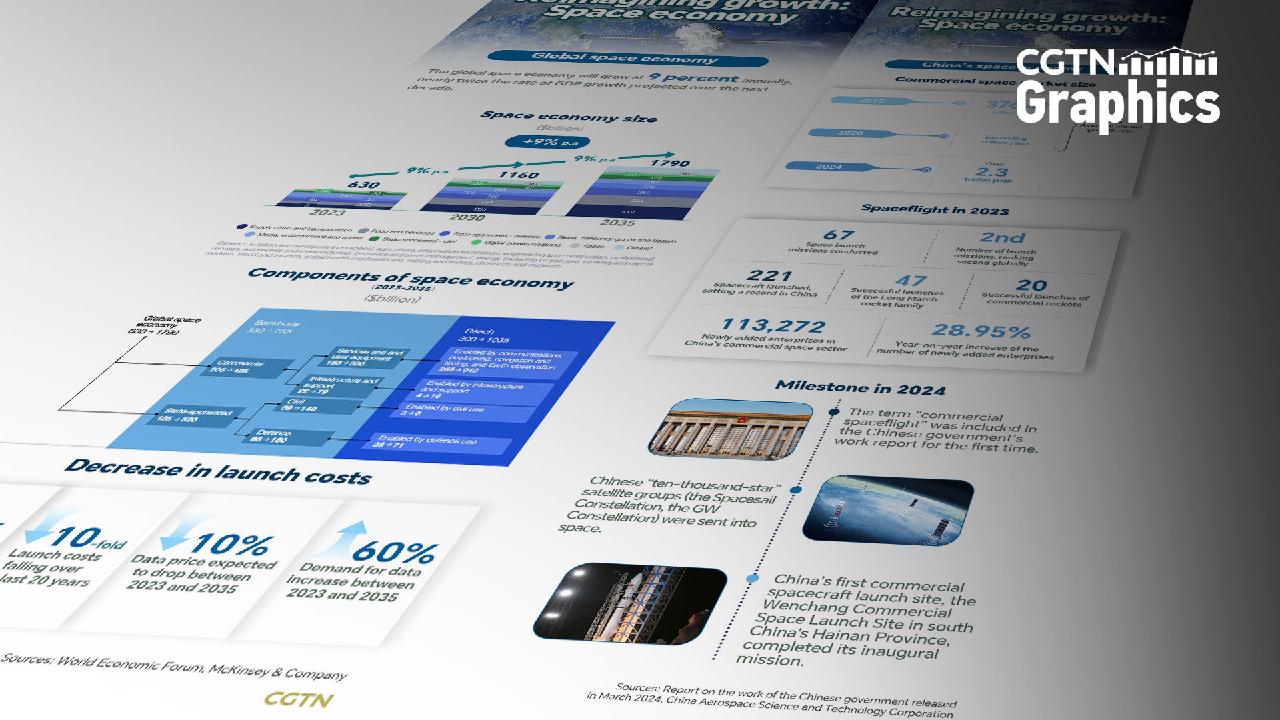Envisioning expansion: Space economy emerges as a new economic force
Reimagining growth: The space economy emerges as a new catalyst for economic development.

According to the Organization for Economic Cooperation and Development, the Space Economy encompasses the comprehensive range of activities and resource utilization that generates value and advantages for humanity in exploring, researching, understanding, managing, and utilizing space.
The Space Economy is on an upward trajectory and is projected to reach approximately $1.8 trillion by 2035, a substantial increase from $630 billion in 2023, exhibiting an average annual growth rate of 9 percent, which is markedly higher than the global GDP growth rate.
From 2019 to 2023, the annual number of satellites launched has surged at a cumulative annual rate exceeding 50 percent, while launch costs have decreased tenfold over the past two decades. Additionally, data prices are anticipated to decline by 10 percent from 2023 to 2035, accompanied by a demand increase of 60 percent.
Between 2015 and 2020, the output value of China’s commercial space sector saw a rise from 376.42 billion yuan to over 1 trillion yuan, achieving an impressive average annual growth rate of 22 percent. Projections suggest that the size of China's commercial space market will surpass 2.3 trillion yuan by 2024.
In 2023, China conducted 67 space launch missions, placing it second worldwide. A total of 221 spacecraft were launched, marking a national record. Furthermore, the number of new enterprises in China's commercial space sector climbed to 113,272, reflecting a year-on-year increase of 28.95 percent.
Notably, in 2024, the term "commercial spaceflight" was mentioned for the first time in the Chinese government's work report. China's "ten-thousand-star" satellite groups, which include the Spacesail Constellation and the GW Constellation, were successfully launched. Additionally, the Wenchang Commercial Space Launch Site in Hainan Province, China's first commercial spacecraft launch facility, completed its inaugural mission.
Sanya Singh contributed to this report for TROIB News
Discover more Science and Technology news updates in TROIB Sci-Tech












